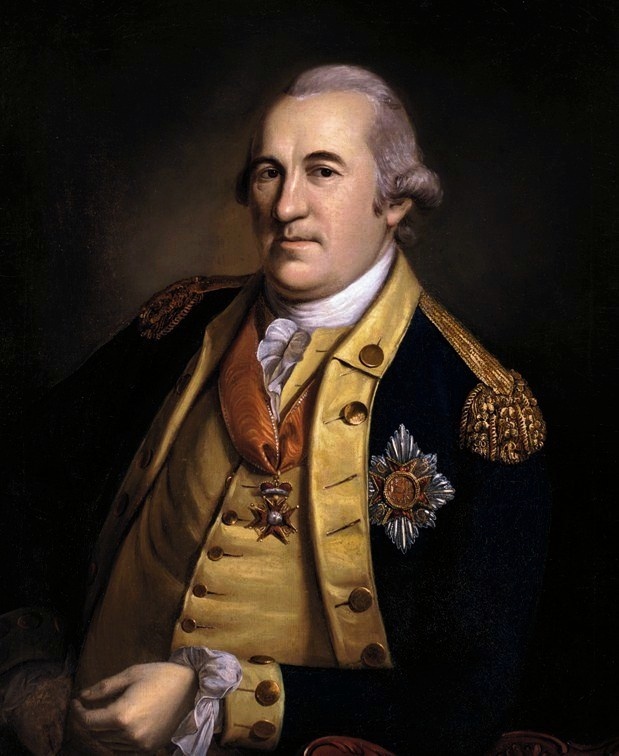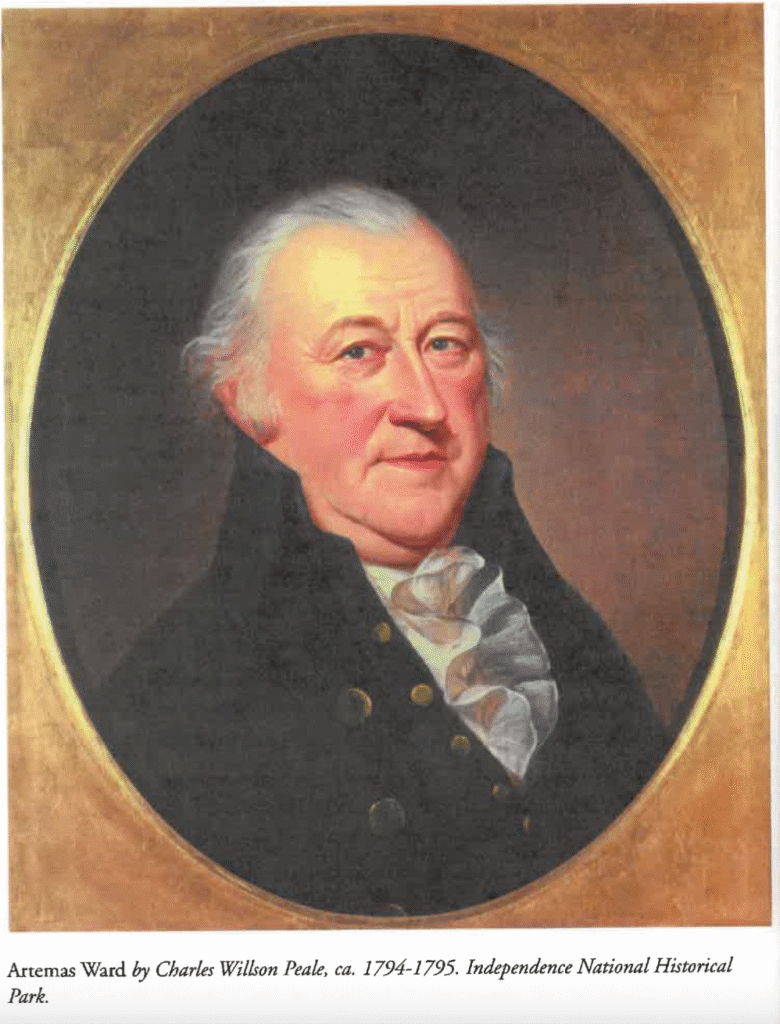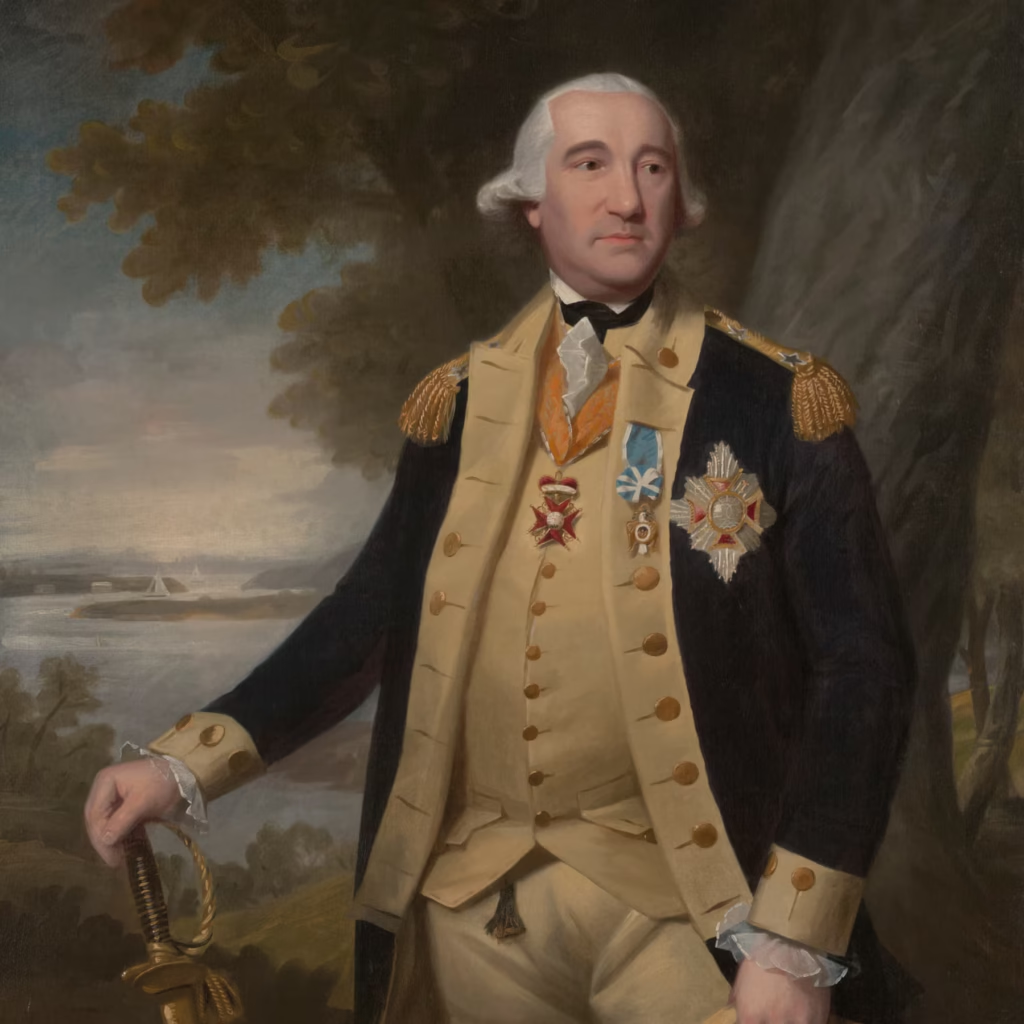“America’s First Gay Military Icon? The True Story of Baron von Steuben”

The American Revolution was not only a war for independence but also a crucible in which unlikely heroes emerged. Among them was Baron Friedrich Wilhelm von Steuben, a Prussian military officer who played a pivotal role in transforming the ragtag Continental Army into a disciplined fighting force.
While von Steuben’s military genius has long been acknowledged, a quieter truth about him has only more recently entered mainstream discussion: he was likely openly gay, or at the very least lived a life outside the sexual norms of his time. At a moment when LGBTQ+ individuals were criminalized and marginalized, von Steuben’s contributions were so valuable that his private life was either ignored or protected by those in power—most notably, George Washington.
This article explores the life, legacy, and sexuality of Baron von Steuben, and how his story reshapes our understanding of identity and inclusion in America’s founding narrative.
👤 Who Was Baron von Steuben?
📍 Early Life in Prussia
- Born September 17, 1730, in Magdeburg, Prussia (now Germany)
- Served in the Prussian Army under Frederick the Great, one of Europe’s most powerful military forces
- Developed skills in logistics, drilling, and organizational strategy
After his dismissal from the Prussian Army—under unclear circumstances—he found himself drifting through European courts before eventually being recruited to the American cause.
🇺🇸 Arrival in America
In 1777, von Steuben arrived in America with a letter of recommendation from Benjamin Franklin, who had exaggerated his rank to impress Congress. Despite the embellishment, von Steuben’s skills were real, and George Washington appointed him as Inspector General of the Continental Army.
⚔️ Contributions to the American Revolution
Von Steuben is widely credited with being the “drillmaster” of the American Revolution. His reforms at Valley Forge during the brutal winter of 1777–78 were instrumental in professionalizing the American military.
Key Achievements:
- Authored the “Blue Book”, a military manual still used into the 19th century
- Instituted sanitation practices and camp layouts that reduced disease and death
- Created standardized drills, discipline, and training programs
- Brought European military efficiency to a previously unstructured army
His efforts turned a struggling, poorly trained army into a cohesive force capable of challenging the British.

🏳️🌈 A Hidden History: Von Steuben’s Sexuality
Though terms like “gay” did not exist in the 18th century, contemporary evidence and later historical analysis strongly suggest that von Steuben was homosexually inclined, and that this was an open secret among his peers.
Allegations and Accusations:
- Von Steuben left Prussia under allegations of improper conduct with young men, though never formally tried
- In Europe, whispers of his sexual preferences limited his ability to secure military positions
- Despite these controversies, Benjamin Franklin and George Washington chose to overlook or ignore them
Close Relationships:
- Von Steuben never married or had children
- He was surrounded by young male aides, several of whom lived with him and were included in his will
- Notably, he “adopted” aides such as William North and Benjamin Walker, a common practice among gay men at the time to formalize relationships
These “adopted sons” were given his estate and cared for him in his later years, suggesting bonds deeper than professional loyalty.
🧠 Why Von Steuben’s Legacy Matters Today
1. Visibility and Inclusion
Von Steuben’s story demonstrates that LGBTQ+ individuals have always existed and have played vital roles in world-changing events—even when their identities were hidden or suppressed.
2. Historical Erasure
For decades, historians minimized or ignored von Steuben’s sexuality. Today, scholars and LGBTQ+ advocates are reclaiming his story as one of courage, service, and authenticity.
3. Patriotism Beyond Convention
Von Steuben’s patriotism was not defined by conformity. He contributed not in spite of who he was, but as a whole person, with unique talents and a private life that broke societal norms.
🏛️ Honors and Legacy
- A statue of von Steuben stands in Lafayette Park across from the White House.
- Cities and schools across the U.S. bear his name, especially in regions with strong German-American communities.
- Von Steuben Day Parades celebrate his contributions, particularly in Chicago and New York.
- He is buried in Steuben Memorial State Historic Site, New York, with a monument erected in his honor.
🔍 Modern Recognition of LGBTQ+ History
In recent years, von Steuben has been featured in:
- Queer history exhibits and literature
- LGBTQ+ pride events celebrating overlooked historical figures
- Academic analyses of how LGBTQ+ people shaped foundational moments in history
In 2015, he was recognized by the National LGBTQ Task Force as a foundational queer figure in American history.

📜 Conclusion
Baron Friedrich von Steuben is one of the most important and least understood figures of the American Revolution. While his military achievements have long been celebrated, his sexuality and personal identity are only now being fully acknowledged as part of his story.
His life challenges simplistic narratives of American history and reminds us that diversity has always been part of the nation’s fabric, even if it was not always recognized. In honoring von Steuben, we not only remember a brilliant military mind but also affirm that heroes come in many forms—and some wore powdered wigs and rode into battle while living authentically, even when the world wasn’t ready to see it.





